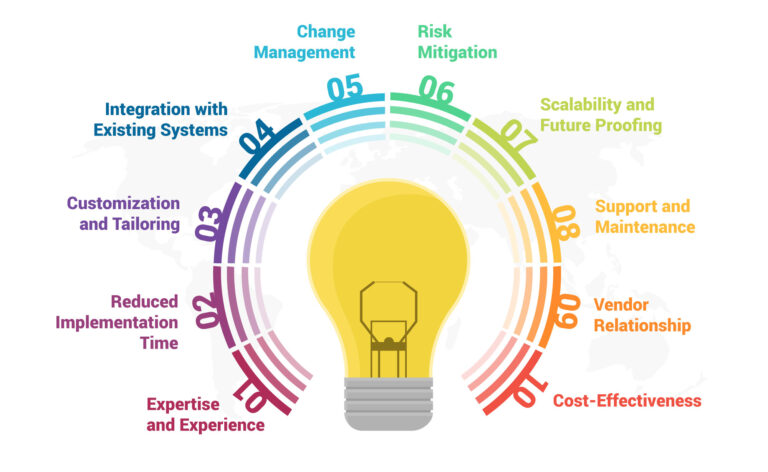Engaging with a System Integrator (SI) for your IFS implementation project can bring several benefits and advantages to your organization. Following are some compelling reasons to consider:
Reasons to Engage with a System Integrator for
Your IFS Implementation

Expertise and Experience
System Integrators have specialized knowledge and experience in implementing IFS solutions. They have worked on various projects and gained insights into best practices, potential pitfalls, and efficient deployment strategies. This expertise can help ensure a smooth and successful implementation.
Reduced Implementation Time
SIs can expedite the implementation process by efficiently planning and executing the project. Their experience allows them to identify and resolve challenges more quickly, leading to faster go-live and quicker realization of ROI.
Customization and Tailoring
Each organization’s requirements and processes are unique. SIs can configure the IFS solution to match your specific requirements, ensuring that it aligns perfectly with your business operations. This customization enhances user adoption and overall system efficiency.
Integration with Existing Systems
In most cases, an IFS implementation requires integration with existing source applications and databases. SIs have the expertise to integrate IFS with your current systems, ensuring data flow and functionality are optimized across the organization.
Change Management
Implementing a new ERP system like IFS involves significant organizational changes. SIs can assist in change management practices by providing training, guidance, and support to your employees, helping your team adapt to the new system effectively.
Risk Mitigation
Implementing an ERP or Field Service system carries inherent risks, such as data loss, downtime, or disruptions to business processes. SIs have methodologies and tools to mitigate these risks, safeguarding your business operations during and after implementation.
Scalability and Future Proofing
A well-implemented IFS solution should be scalable to accommodate future business growth and changes. SIs can design and deploy a solution that considers your long-term requirements, ensuring your ERP or Field Service system remains relevant and efficient as your business evolves.
Support and Maintenance
After the initial implementation, you’ll need ongoing support and maintenance for the IFS system. SIs can provide continuous support, updates, and troubleshooting services, giving you peace of mind and enabling your internal IT team to focus on other critical tasks.
Vendor Relationship
SIs often have established relationships with software vendors like IFS. This can be beneficial during the implementation process, as they can facilitate communication, provide access to resources, and ensure timely issue resolution.
Cost-Effectiveness
While it may seem counterintuitive, engaging with an SI can often lead to cost savings in the long run. Their efficiency, experience, and ability to prevent costly mistakes can outweigh the initial investment in their services.
However, it’s essential to choose the right SI that aligns with your organization’s goals and values. Conduct thorough research, check their references, and evaluate their previous project successes before deciding. Collaborating with the right SI can significantly increase the likelihood of a successful IFS implementation that brings real value to your business.
If you are looking to start an IFS implementation contact us to see how we can help.






